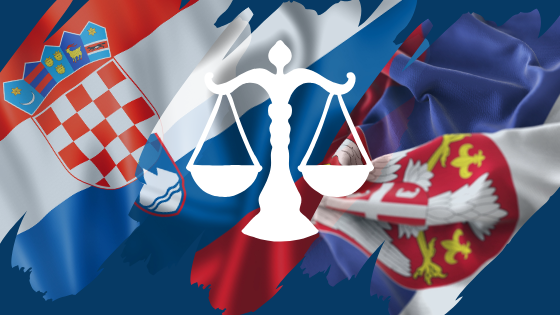

Croatia has implemented many important legislative measures for dealing with the COVID-19 crisis. Primarily, the Government will be paying minimal wages to companies that requested Government aid during the COVID-19 crisis in the amount of 4.000,00 HRK (approx. 530,00 EUR). Furthermore, if a company has a 20% to 50% fall in incomes, it will be allowed a delay in payment of taxes for three months (after the delay, the company will have to pay it in the upcoming 24 months). Companies that have incomes up to 7,5 million HRK and have more than 50% decrease in income won’t have to pay taxes for the following three months. However, companies that have incomes more than 7,5 million HRK and have a decrease in income from 50% to 100% will not have to pay taxes for the following three months in the amount proportional to their decrease in incomes (e.g. if they had a 75% decrease in incomes, they will only pay 25% of all taxes). Companies that have incomes more than 7,5 million HRK can pay the added value tax after a receipt the company issued is paid, and not at the moment of issuing the receipt (as it was the case so far). The deadline for submitting financial reports to the Financial agency is postponed until June 30th. A recommendation is issued that in the process of public procurement national agricultural manufacturers have an advantage in comparison to foreign goods manufacturers (the European commission will green light this measure given the state of the market at this time). Banks have allowed postponements in paying monthly installments of loans to consumers and no new enforcements will be commenced within a three-month period. Banks will also grant new loans (with repayment within three years) to small and medium entrepreneurs with minimal interest rates for continuing their business and paying salaries to their workers.
All courts have held hearings and ruled only in urgent cases. All court hearings in cases other than urgent shall be canceled. Except in urgent cases, procedural time limits do not run during the duration of specific measures, nor are court documents served.
Local banks or subsidiaries of EU banks that have their seat in Slovenia shall grant a moratorium on loan repayments for a period of 12 months provided that obligations under the loan agreement have not yet become due and payable until the declaration of COVID-19 epidemic. Borrowers can address a request for the moratorium to the bank no later than within six months after the COVID-19 epidemic is canceled. The borrowers are also obliged to report monthly to the bank on their implementation plan to restore liquidity and other changes to their business position. The bank also may suspend or shorten the moratorium period if certain requirements are fulfilled (e.g. the borrower fails to report regularly to the bank, the suspension or shortening of the moratorium is justified based on the borrower’s reporting and other information the bank has at its disposal, the borrower provides the bank with false information…)
The measures provided for in this act shall be valid for 18 months from the expiry of COVID-19 epidemic.
To further combat the negative economic effects of the epidemic and help businesses in need, several credit lines will be available by Slovenian investment and development bank (“SID”), Slovenian Enterprise Fund (“SEF”) and Ministry of Economic Development and Technology (“MEDT”).
The implemented measures deal with a standstill of procedural deadlines and postponement of enforcement procedures. No hearings will be held except for those relating to injunctions and cease and desist orders. The obligation of the banks (and the lease providers) is to offer the debtors a delay in repayment of their debts (moratorium). The banks have announced on their website the offer for the delay in repayment of the obligation. After the banks (lease providers) have published this offer on their website, the borrower has a period of 10 days from the date of announcement to reject the offer, and if he does not do so – the offer will be considered accepted on the tenth day. The moratorium implies a delay in repayment of obligations to the bank on the basis of the loan, as well as all other obligations of the debtor towards the bank. Debtors with multiple loans are entitled to a moratorium on repayment of all loans. During a state of emergency introduced as a result of a pandemic, the banks do not charge default interest. Upon termination of the moratorium (which may not be less than 90 days, that is, the duration of the emergency during the pandemic), the debtor continues to repay the loan, and the repayment period is effectively extended by 3 months. If the debtor requires from the bank a different method of repayment which he thinks is more appropriate for him, the bank should consider the proposals.